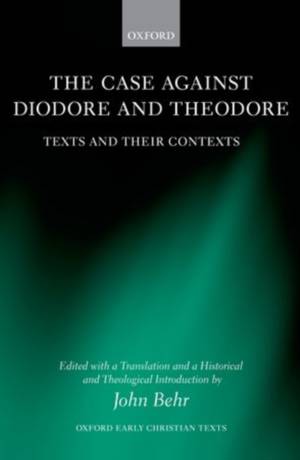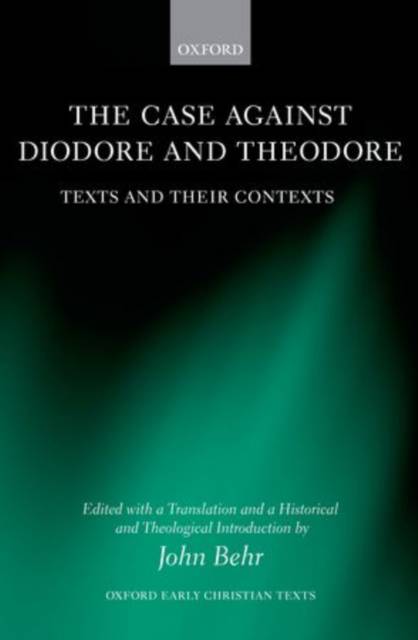
Bedankt voor het vertrouwen het afgelopen jaar! Om jou te bedanken bieden we GRATIS verzending (in België) aan op alles gedurende de hele maand januari.
- Afhalen na 1 uur in een winkel met voorraad
- In januari gratis thuislevering in België
- Ruim aanbod met 7 miljoen producten
Bedankt voor het vertrouwen het afgelopen jaar! Om jou te bedanken bieden we GRATIS verzending (in België) aan op alles gedurende de hele maand januari.
- Afhalen na 1 uur in een winkel met voorraad
- In januari gratis thuislevering in België
- Ruim aanbod met 7 miljoen producten
Zoeken
The Case Against Diodore and Theodore
Texts and their Contexts
€ 499,45
+ 998 punten
Omschrijving
The first complete collection of the remaining excerpts from the writings of Diodore of Tarsus and Theodore of Mopsuestia together with a ground-breaking study of the controversy regarding the person of Christ that raged from the fourth to the sixth century.
Specificaties
Betrokkenen
- Uitgeverij:
Inhoud
- Aantal bladzijden:
- 548
- Reeks:
Eigenschappen
- Productcode (EAN):
- 9780199569878
- Verschijningsdatum:
- 5/05/2011
- Uitvoering:
- Hardcover
- Afmetingen:
- 170 mm x 240 mm
- Gewicht:
- 957 g

Alleen bij Standaard Boekhandel
+ 998 punten op je klantenkaart van Standaard Boekhandel
Beoordelingen
We publiceren alleen reviews die voldoen aan de voorwaarden voor reviews. Bekijk onze voorwaarden voor reviews.








